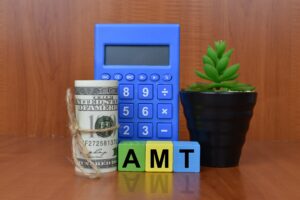How To Handle a Tax Bill You Can’t Pay

How To Handle a Tax Bill You Can’t Pay
What could be more chilling than receiving a notice from the IRS that you owe a huge tax bill? The answer: the realization that you don’t have the money to pay off said tax bill. So what should you do if you find yourself in this situation? There is hope.
First off, never ignore such a situation and just hope that it will go away. That won’t work. Instead, face it head on. A good place to start is to contact a tax professional. The IRS does offer several options for people in this situation, but you might not know which is the best option for you. Therefore, meeting with a tax pro is usually a good idea.
The IRS actually offers several payment options for taxpayers in the hole, if they qualify. You can go ahead and pay it off directly from your bank account via IRS Direct Pay. You can also petition the IRS for an installment agreement wherein you agree to pay off the debt monthly. You can request an offer in compromise, as well, which if accepted could lower the amount you have to pay back.
However, as mentioned you must qualify for this option and part of that includes having debt and penalties of $50,000 or less, combined. No matter which payment method you choose you should do everything you can to pay off your debt in full as quickly as possible. The longer you delay payment the stiffer the penalties and the interest will get
Want to learn more? Contact us
Follow GROCO on Facebook
Business Angels for Your Startup Business
Business Angels for Your Startup Business By Mike Cain Setting up a new business can be a daunting prospect. There’s the possibility of failure, and with it, the risk of losing the money you’ve invested in your company, as well as seeing all your months or even years of hard work go to waste. But,…
Securing Second- and Third-Round Venture Capital Financing
Securing Second- and Third-Round Venture Capital Financing By Jim D. Ray Widget sales are booming – the competition is scrambling, demand is up, and the books are finally treading water. Your core management team has big ideas for the future of Widget Inc. Opportunity is abundant; but how will you fund that next big leap?…
Ten Ways Start-ups Use Venture Leases And Loans To Generate Millions
Ten Ways Start-ups Use Venture Leases And Loans To Generate Millions By George A. Parker The rise of venture leasing and lending has created an opportunity for sophisticated entrepreneurs to gain a competitive advantage. Savvy entrepreneurs are using venture leases and loans to generate millions of dollars for shareholders by leveraging existing venture capital. They…
Avoiding AMT
Avoiding AMT More and more taxpayers are finding a hidden tax on their individual tax returns. The alternative minimum tax (AMT) attempts to ensure that high income individuals who benefit from the tax advantages of certain deductions and exemptions will pay at least a minimum amount of tax. This tax was originally designed to keep…




